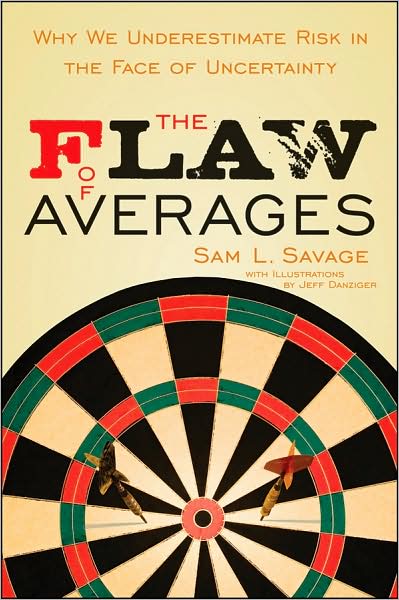“Just give me the number, willya?”? Ugh.? I’ve had the question asked many times in my life working in or alongside financial reporting in a company.? They need a number for the budget, even though that number will certainly be wrong, leading to numerous explanations for why we are mistracking the budget.
The truth is though there will be one result for the question you ask prospectively, hypothetical answers will often systematically mis-estimate the result when average inputs are fed into models.
As I have experienced in the insurance industry many times, good companies accept feedback from claim experience? into new product pricing, and consider the potential downside risks.? Bad companies rely on industry tables (averages), and assume that downside deviations are just random.
Would we manage companies better if we shared data on how uncertain our estimates are?? Certainly, but the whole company would have to be geared toward understanding how to deal with risk and uncertainty.
Often there is option-like behavior in companies, where if sales are low, expenses will be cut back to a baseline level, but if they are high, expenses will run.? Average expense numbers rarely express the likely result.
Most people/companies assume that things will be stable.? If we look at projections of investment results, stability is the norm.? But our world is unstable.? There are booms and busts; there are wars.? Plans lose their validity when the real world appears.
“The Flaw of Averages” is a popular book on statistics.? It points out many ways in which statistics are abused.? This book will make you a skeptical and reasoned consumer of statistics.
Quibble:? My main difficultly with the book, is that much as the author tries to simplify the concept of complex simulations, is that in the ninth part of the book, he seems to overly encourage use of his own software.
Aside from that, the average reader will learn many ways that statistics such as averages can deceive.? As Benjamin Disraeli, once said, “There are three kinds of lies: lies, damned lies, and statistics.”? This book will help you avoid the last sort of lie.? I recommend this book.
If you want to buy it, you can buy it here: The Flaw of Averages: Why We Underestimate Risk in the Face of Uncertainty
Full disclosure: All purchases from Amazon entering through my site give me a small commission.? Your price at Amazon does not change as a result of the commission.

